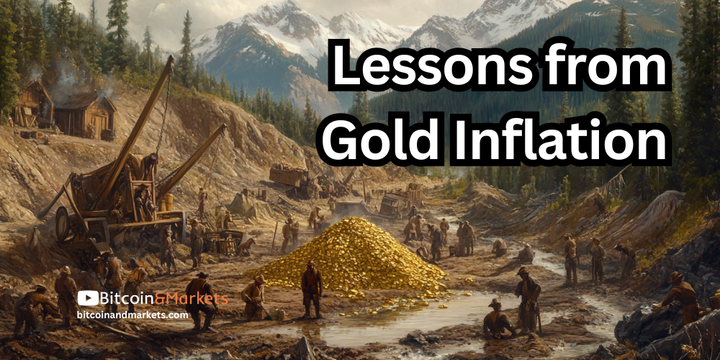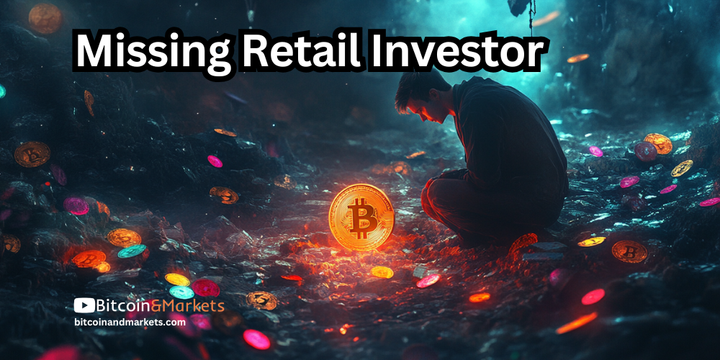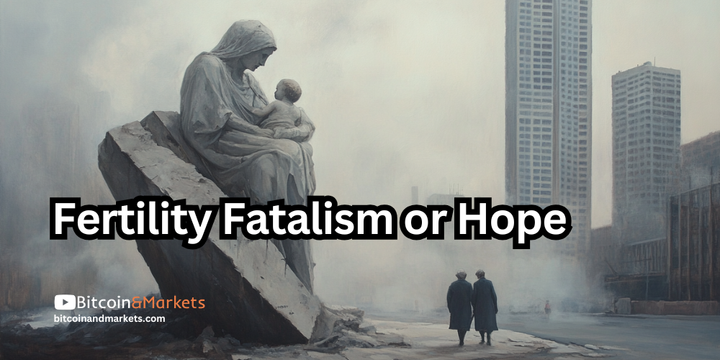The Coming Multipolar World
There are competing theories of what the coming multipolar world will look like. This is my synthesis of views.
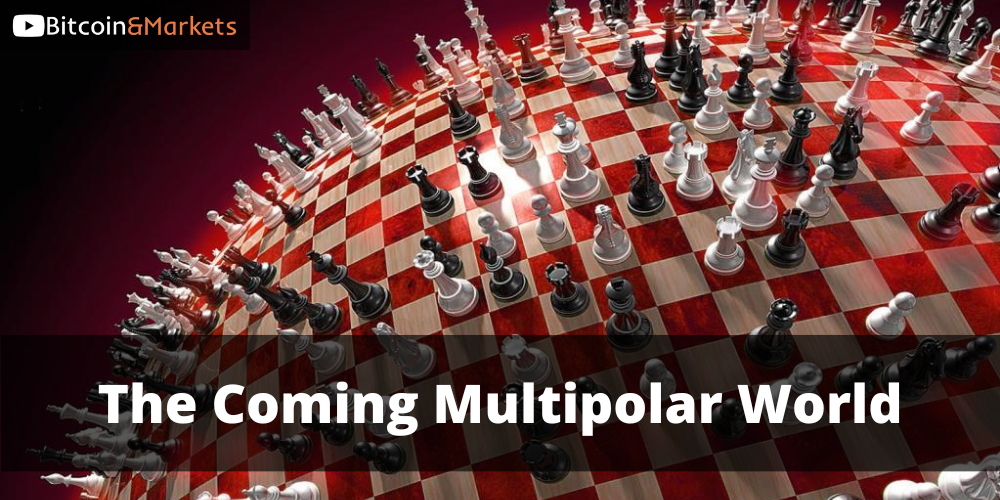
The Ukraine war is not going well for the West. We cannot predict the exact way in which this war will end, but what's certain is this war will eventually end, one way or another, and it will likely begin a massive geopolitical realignment.
Different views
The US has dominated global affairs for decades. You can call it the US-led order or US hegemony, but most experts believe that time is coming to an end. The US no longer has that kind of unilateral power. If the West is defeated in Ukraine, under US leadership, it will be the end of US hegemony. A new multipolar world is rising.
There are competing theories of what a multipolar world will look like. Below are three commonly held views and my synthesis that tries to blend classical geopolitics, realism, and rhyme more with history.
The first and most widely held view is that China is a "peer competitor" to the US, and will be the leading pole opposite the US in a new Cold War. This view became viral among Western academics in 2012 with the publication of Graham Allison's first Thucydides Trap article (I've debunked this idea over several podcast episodes). A rising China has also become very popular amongst US detractors. I say they have US derangement syndrome, naively blaming all the world's ills on US hegemony. However, since COVID exposed global risk of supply chains and the US/China trade war has exposed structural flaws in the Chinese economic miracle, the fantasy of a rising and invincible China has been broken. The BRICS (Brazil, Russia, India, China and South Africa) are the newest counterweight du jour. Russia is fighting in Ukraine, allied with China (for now), and selling energy to the two most populated countries in the world. If China's economic model needs robust international trade to continue, the BRICS seem to offer an answer. Russia as a source for China's inputs and export markets in India and Brazil. Of course, this common view has major issues, both economic and geopolitical, which I'll discuss below.
Another important multipolar view to consider, going down a spectrum from largest distribution of power to smaller, is that of the geopolitical realists, like the famous John Mearsheimer. He says the world is moving away from the US-led, Western dominated era to an era of relatively equal balance between 3 poles of the US, Russia and China. Notice, he does not involve South America or Africa in this view of power politics.
Another view is that espoused by more classical geopolitical thinkers, like Peter Zeihan. He does not see other regions being able to match the US economically or militarily in the foreseeable future. He also sees some traditional regional powers becoming more powerful within a second tier, but none rivalling the US.
My synthesis of views
In my view, all these theories view the players as too monolithic. Each country consists of numerous interests and power groups.
It's overly simplistic to talk about "US" hegemony or "the West". China, too, is a vast country that has complex power structure and rival groups. It is not enough to say the US is global hegemon, you must ask which group within the US is in power? Same for China, the CCP is different than "China". If they become hegemon, does that mean the CCP remains in power, or does that require a less communist government to take control? If we go back to 1945 it becomes clear that factions within a country can seize power and rapidly tip the tables of global power, then just as rapidly be defeated and replaced, redrawing the map.
The current West has radically changed in the last 30 years, becoming internally dominated by global Marxists, and losing touch with our core western liberal values. It is the global Marxists in Brussels and Washington, with their gnostic beliefs of human perfection, who are failing.

I go into more detail below, but when the global Marxists are defeated, it will not be the fall of the US and the West, it will be a rebirth. The common view above is some other great power must rise to rival the West, when in fact it is a new West that is rising and the current iteration of leaders who are falling. The West is both rising and falling at the same time.
China and Russia cannot rise
People wrongly see a false dichotomy, that a declining West must be offset by a rising China or Russia. This is not the case. As the West experiences internal fights, their global influence and police power will wane, leaving room for the weaker States to pursue their geopolitical goals. China and Russia are not rising, the West is distracted by internal political battles.
Both China and Russia have massive demographic cliffs coming. Russia has been below replacement fertility since 1970, the life expectancy of males is 65, and many of their engineers and scientists are near retirement or left after the USSR fell. Not all but much of the natural resource industry is run by Western companies, engineers and scientists.

China is in worse shape. Russia at least has a balance between men and women of childbearing age. China, on the other hand, after decades of the one child policy, has many fewer females. Of childbearing age, men outnumber women by roughly 11%. That means the replacement fertility rate is higher than countries with equal numbers of men and women.
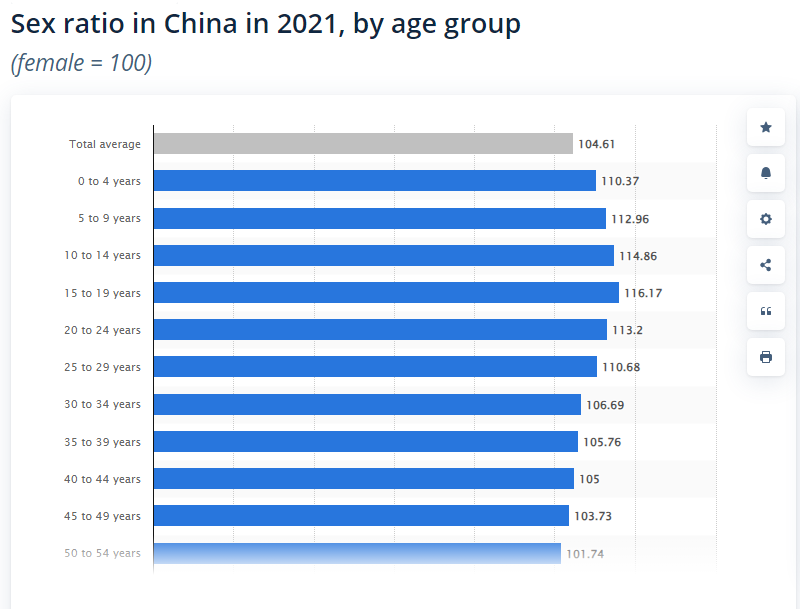
With a significant number of fewer females, each female would need to have more children to reach a total population replacement number. I haven't run the numbers, but a replacement rate for China might be as high as 2.3 instead of the 2.1 for balanced populations. That means the current 1.16 is even further negative. Fewer people having fewer kids, snowballs on itself below replacement. The further you go below replacement the faster the decline. At 1.16, the population decline is going to shockingly fast.

This isn't the only problem with China. Obviously, they are communist with a directed economy, but they are also wholly dependent on current system not changing. They not only need vast amounts of imports including food, they also must sell their products to the rest of the world. They need customers. Ghost cities are one thing, but cranking out massive amounts of products from their factories must be sold somewhere!
Academics in China are just now starting to talk openly about a wholesale reworking of their economic model. They now realize they must move away from production to consumption. A move many countries have attempted, and almost all fail. With a communist command economy and a rapidly shrinking population, this shift to a consumption led economy is impossible. China is simply not a viable superpower in 10 years.
The United States pole
As I've stated, the typical view of a declining West and rising BRICS (or individually Russia and China) is too monolithic in structure. Power and countries do not work like that. We must think of shifting internal politics as well as geopolitics.
The West was built on classical liberal values, individualism, property rights, and capitalism. However, over the past few decades, the capitalists were swayed by their traditional enemy, the global Marxists, to make seemingly small marginal changes to laws and structure. The globalists used the liberal slogans of equality (equity) and anti-discrimination to sneak in anti-liberal policies. And it worked, because economic growth was robust. The capitalists were drunk on success and globalization, they didn't notice their dream of opening the world to free trade had been hijacked by the global Marxists.
Today, the economy has soured with the end of a long-term debt cycle. Robust growth has turned into a rolling financial crisis. The Marxist have become entrenched in academia, the media, and government. They flexed their control muscles with COVID, coordinating a shutdown the global economy, which shook the capitalists (Wall Street monied interests) out of their delusion. Covid lockdowns, ESG, DEI, struggle sessions, fiery but peaceful protests, and financial weaponization finally woke people up. That last one is the straw that broke the camel's back, in my opinion.
All the talk about a CBDC, its total lack of benefit other than greater political control, spooked the capitalists on Wall Street to begin extricating the globalists from the West. The true cost of these Marxist policies are now being felt as the economy is simply not strong enough anymore to absorb them.
Like anyone getting backed into a corner, the globalists are fighting back. They are going full speed ahead, trying to not only secure their positions geopolitically but also defeat their detractors domestically. This battle is what people feel as the decline of the West, and falsely conclude is the end stage of liberalism.
The Ukraine war is a way to bring Europe to heel under globalist-led US protection. The Nord Stream pipeline, sabotaging an early peace deal, draining NATO weapons stockpiles, all these things make Europe more vulnerable, more dependent on the US, and weaker in general. Weaker economies and despondent people are easier to control. Marxists always think in terms of breaking people down to control them. Western sanctions also had the added benefit, in their eyes, of harming the Russian economy. The aim was to bring everyone down.
These are two poles which initially emanate from the US in the coming multipolar world: 1) Wall Street/Capitalists, and 2) Davos/global Marxists.
The enemy of my enemy is my friend
The populous is a third group in the United States. The US social fiber is heavily freedom oriented, matching perfectly with capitalism, but it does lean toward a national identity with some collectivist ideals, like collective bargaining, charity, and communities of faith, that might grow into a conflict later on down the road with the capitalists. Populism is on the rise around the world as a reaction to global socialism, NOT liberalism.
While the US populous are not perfectly aligned with Wall Street, they are both polar opposites to Marxism. This is why both the populous and Wall Street will join forces to get rid of them.
Populism takes different forms in different countries. We see populism on the rise globally, and in the US it leads toward isolationism. There is a whole wikipedia page about it.
United States non-interventionism primarily refers to the foreign policy that was eventually applied by the United States between the late 18th century and the first half of the 20th century whereby it sought to avoid alliances with other nations in order to prevent itself from being drawn into wars that were not related to the direct territorial self-defense of the United States. Neutrality and non-interventionism found support among elite and popular opinion in the United States, which varied depending on the international context and the country's interests. At times, the degree and nature of this policy was better known as isolationism, such as the interwar period.
The US will swing back to non-intervention with a core number of close allies, which will destroy the Chinese economic model, give space for more major wars, and leave much of Europe out to dry.
Marxists regroup elsewhere
This won't be the end of the Marxists. It will take a generation to take back the Universities and other institutions, but the writing is on the wall. It failed in the USSR, it's failing in the West which will lead to it failing in the Chinese Communist Party, as well. It will morph once again, not go away.
Most likely, third tier nations will be too weak to stave off the Marxists going there and taking over. With the US rededicating itself to non-interventionism, it will not intervene in small countries to save them. Therefore, I see the possibility of a new crop of Marxist countries in coming decades, consisting of disparate States. Venezuela, Cuba, Chile, Spain, some African countries, Lao, Vietnam, North Korea, and maybe part of a broken China.
The Marxists get chased out of the West, creating a second pole, basically a collection of dangerous, failing States. They will have outsized influence because the US will not intervene. They will be wild and bully their neighboring countries. They will also be some of the countries with the best demographics, so they can infiltrate through immigration.
The third pole
There are two other viable poles left in the world other the US/Wall Street and Marxists. I will start with the BRICS, or perhaps an altered version of the BRICS, and then go on to Europe. Yes, we have to bring the BRICS back into the discussion, despite Russian and Chinese demographics if you put them all together, they make a formidable force.
Many countries are applying for BRICS membership. It is a growing coalition with a combined economy that is now larger than the G7.
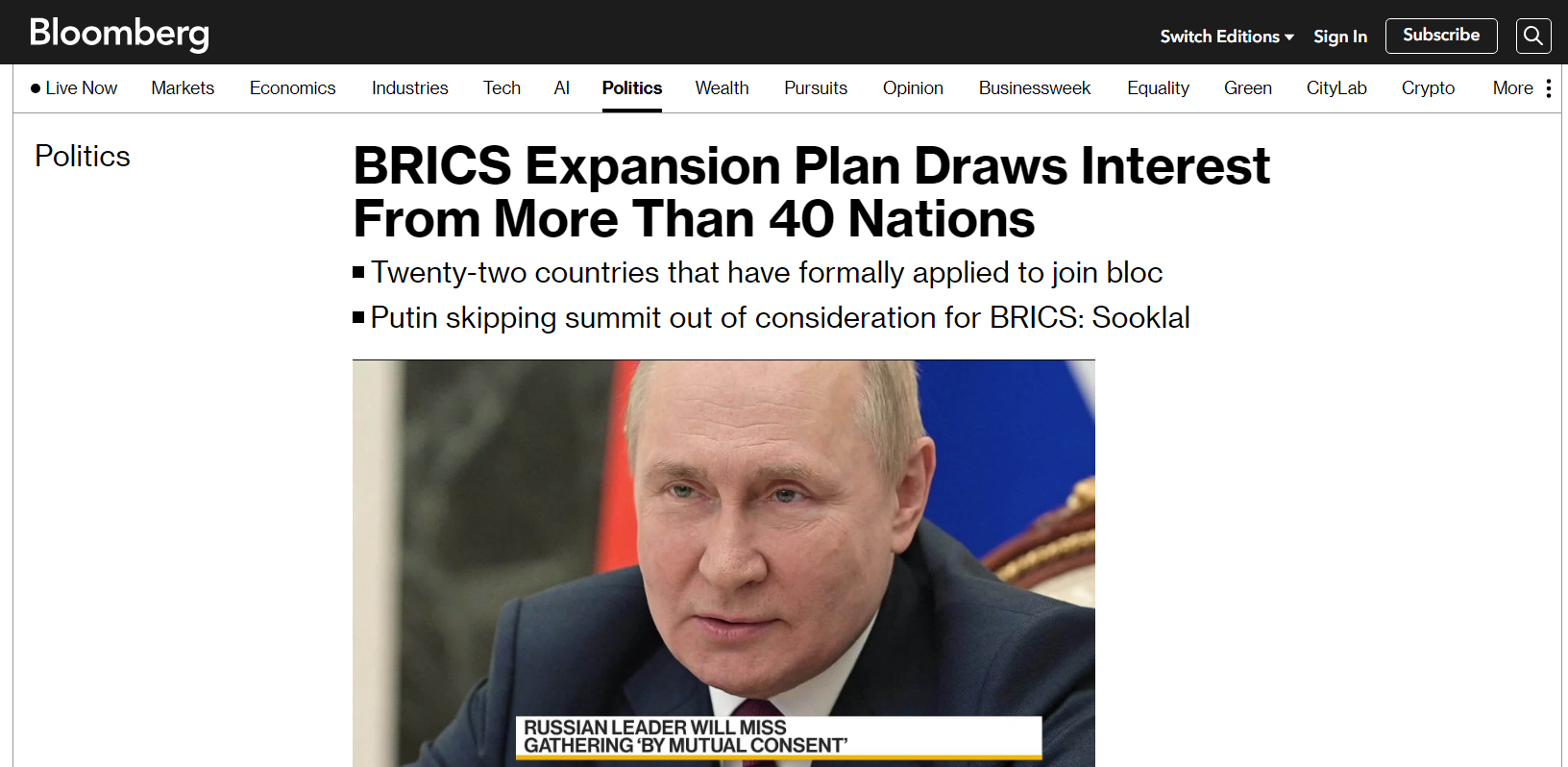
I do not believe that the CCP will maintain its current form for much longer. There are simply too many headwinds for communists to overcome without massive social unrest and oppression. China is allied with Russia for now, but they are natural enemies as both land powers in Asia. If the CCP survives the next 5-10 years, where can they turn for more resources and a patriotic war? Japan, a close US ally is out of the question, India as well, that leaves the "Stans"; Kazakhstan, Kyrgyzstan, Tajikistan, Turkmenistan, and Uzbekistan, with their vast natural resources. The only problem is they are close allies of Russia.
I think it is likely that the CCP and Russia will have a conflict in the coming decade. This will force the BRICS to choose Russia or China, and they will choose Russia. That swings the CCP into the group of Marxist nations if it doesn't collapse, and Russia becomes leader of the BRICS.
European pole
Where does this leave Europe? There are several geopolitical theories for the progression of Europe, post-European Union. I think it goes without saying that the EU will break up in the next two decades. They are out of money and weapons, with a prospect of deindustrialization, thanks to the globalists. As the globalists are chased out, there will be nothing holding the old system together.
In my initial commentary on this version of a multipolar world, I did not include Europe, but I think it is important because they are unlikely to join the BRICS, the US, or the Marxists.
Let's quickly analyze a few countries to get an idea of the whole situation in Europe. The first is Turkey. Turkey sits at the naturally powerful geographical location. It has two millennia of history controlling the near east, the Bulgaria (Thracia) and Greece. The last 100 years has been an ebb in their power, but they will rise again soon enough. They are also a natural fit for the BRICS, so I expect them to join with Russia as a leader of the Muslim faction within that group.
As the EU crumbles, I can see France attempting to form a replacement union with other western European partners. France has the most congruent land area and best military in Europe. The long term divide along the Rhine will come back. Roughly, west and south of the Rhine will likely be a group, perhaps led by France and Italy, with interests in North Africa and the Mediterranean. This would include the Low Countries, perhaps retaining Brussels as the capital of a Western European Union.
Germany, or more generally, northern and eastern Europe's history is more decentralized, with many small kingdoms and dukedoms, the trade cities of the Hanseatic League, Poland, Danzig and the Baltic States, not to mention the Carpathian basin, and down into the Balkans. East of the Rhine is going to be interesting with swapping alliances to the west and east.
Conclusion
Unlike the typical multipolar world we hear about, with static borders and obvious rivalries, the real multipolar world emerging in the next couple of decades is going to split between: 1) the US and close allies, 2) a Marxist League, 3) the BRICS, and 4) a new Europe.
The 4 poles will not be equal. The US will continue to be the heavyweight, but concern itself much less with the wider world. The burdens of the last 75 years will be lifted from the domestic economy and culture. Its share of global GDP will likely grow from 20% to roughly 1/3rd.
The other 3 poles will be left to their own devices, fighting amongst themselves in an uneasy parity. International institutions like the UN, IMF and WHO will go away or be revamped. New institutions and a new money will need to be set up to support this period of deglobalization and multipolarity.


